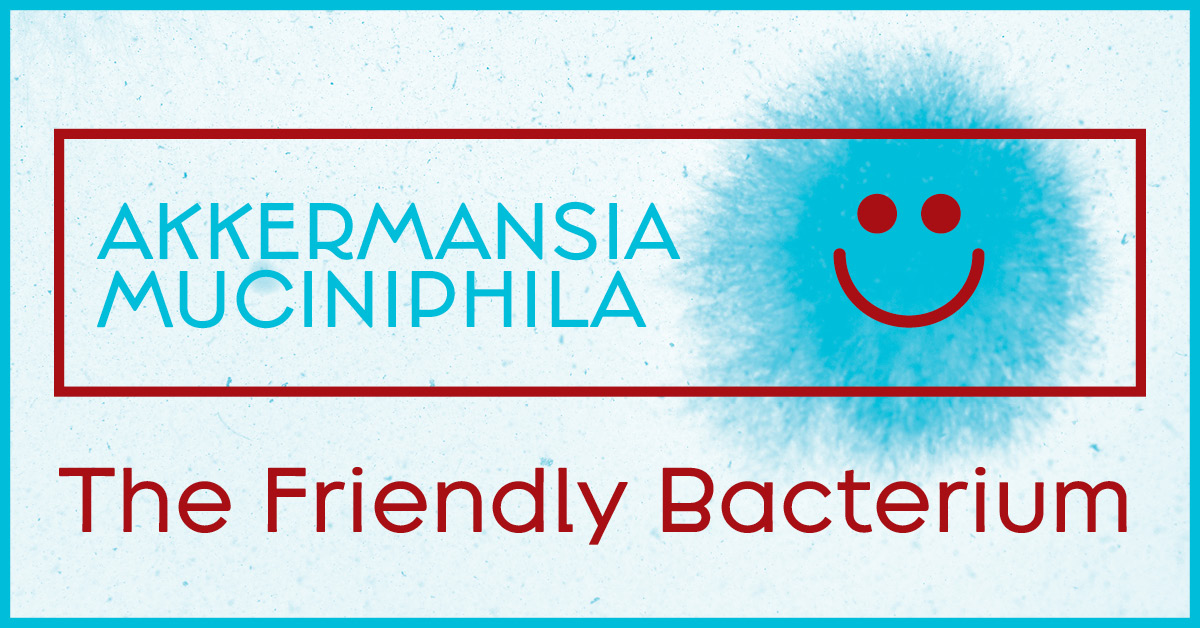
Here’s a word that you can pull out to impress friends at your next dinner party: Akkermansia muciniphila. If you can manage to pronounce it, great. But what does it mean? And why do you need to know?
Akkermansia muciniphila is a bacterium (aka one single bacteria) that lives in the gut. We’ll call it a “friendly” bacterium that’s present in almost all healthy individuals (so you want to have lots of it!).
Here’s the interesting part: The abundance of Akkermansia muciniphila decreases in people with chronic diseases, like obesity, type 2 diabetes, inflammatory bowel disease, and cardiovascular disease.
In recent years, there has been growing interest in the potential health benefits of Akkermansia muciniphila, particularly its role in maintaining gut barrier function and reducing chronic inflammation. Let’s find out why …
Boosting gut barrier function
The gut barrier is a complex system that prevents harmful substances, such as bacteria, toxins and food antigens, from entering the bloodstream. When the gut barrier breaks down, you begin to experience the symptoms of “leaky gut syndrome.” (I get into this topic in detail in my blog post, “10 Ways to Treat a Leaky Gut.”)
The gut barrier is composed of several layers, including the mucus layer, epithelial cells and the immune system. The mucus layer is the first line of defense. It is composed of mucins, which provide a protective barrier against pathogens and harmful substances. Akkermansia muciniphila is a mucin-degrading bacterium that can break down mucins into smaller molecules, which can then be used as a source of energy.
In addition, recent studies have shown that Akkermansia muciniphila can also enhance the production and thickness of the mucus layer, improving gut barrier function. These findings suggest that Akkermansia muciniphila may play a crucial role in maintaining gut barrier function and preventing chronic inflammation and disease.
Combatting chronic inflammation
“Inflammation” is the body’s response to harmful stimuli, such as pathogens, toxins and damaged cells. Swelling after an injury is a common example of inflammation, which can easily be treated with ice, compression and elevation.
Chronic inflammation, on the other hand, can lead to tissue damage and dysfunction, and eventually contribute to the development of chronic diseases. For example, chronic inflammation is a key driver of many chronic diseases, including obesity, type 2 diabetes and cardiovascular disease.
Recent studies have shown that our friend, Akkermansia muciniphila, can reduce chronic inflammation in the gut and other organs, thereby improving overall health. Research highlights include reduced inflammation in the gut and other organs, improved glucose tolerance and reduced insulin resistance (which are key factors in the development of type 2 diabetes), and lower levels of inflammatory markers.
These findings suggest that Akkermansia muciniphila may have anti-inflammatory properties that can reduce the risk of chronic diseases.
Maintaining metabolic health
Metabolic health relates to the function of your metabolism, and includes factors like blood glucose levels, insulin sensitivity and lipid profile. Poor metabolic health is a significant risk factor for many chronic diseases, such as obesity and type 2 diabetes.
Recent studies have shown that Akkermansia muciniphila may improve metabolic health by reducing inflammation and improving gut barrier function. For example, treatment with Akkermansia muciniphila has shown to improve glucose tolerance and insulin sensitivity, and reduce weight gain and inflammation that can contribute to the development of obesity.
Another look at Akkermansia muciniphila showed that people with a high abundance of the bacterium had lower levels of fasting blood glucose and a better lipid profile compared to individuals with a low abundance.
All of this suggests that Akkermansia muciniphila may provide metabolic health benefits that can reduce the risk of chronic diseases.
Host of other health benefits
In addition to the gut health, chronic inflammation and metabolic health benefits, Akkermansia muciniphila may also benefit areas like immune function and brain health.
For example, researchers are looking at how the bacterium can improve immune function, reduce the severity of colitis, improve cognitive function, and reduce anxiety.
Akkermansia muciniphila: Your new best friend?
The research into the health benefits of Akkermansia muciniphila is still fairly new – and continually evolving – but from my point of view, it’s looking like an effective tool to have on hand to support gut health, reduce chronic inflammation and improve metabolic health (and maybe even immune function and brain health!).
There are several probiotic supplements containing Akkermansia muciniphila on the market today, with more being developed all the time. If you’re interested in exploring if Akkermansia muciniphila supplementation is right for you, be sure to work with your doctor or dietician to find the best one for your unique needs.
You may also want to look at a gut health test to gauge the abundance of the bacterium currently in your system. (Psst, gut health testing is one of the services we specialize in at my functional medicine clinic!)
As always, if you’re looking for some friendly advice about gut health, please get in touch. If you’re in the Oklahoma City area, I’m seeing patients at Evoke5, my functional family medicine clinic. I also offer online consulting for clients across the country.
